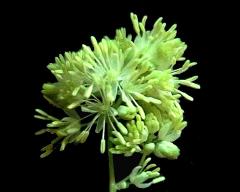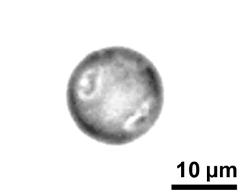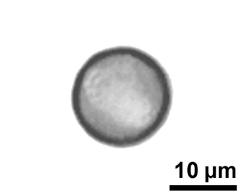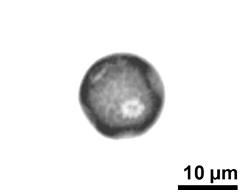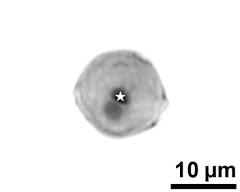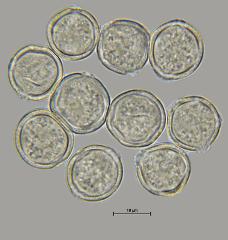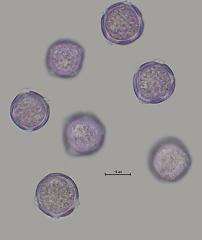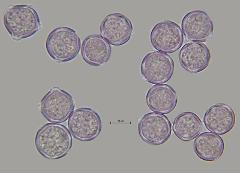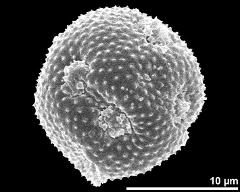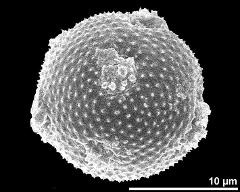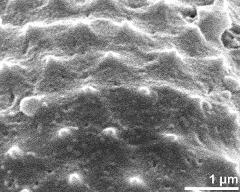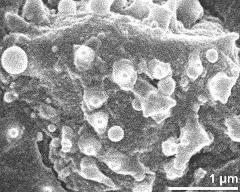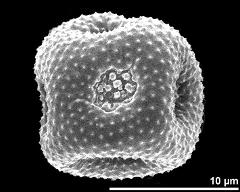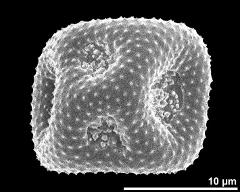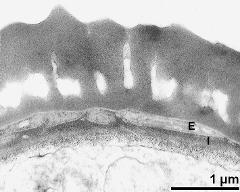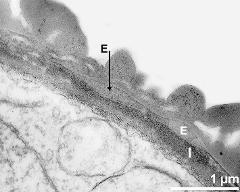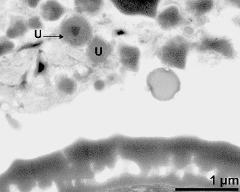Thalictrum lucidum
Taxonomy: Angiospermae, Ranunculales, Ranunculaceae, Thalictrum
Links: http://flora.nhm-wien.ac.at/Seiten-Arten/Thalictrum-lucidum.htm
Published: 2021-02-03
Pollen Description
Shape, Size and Aperture
pollen unit: monad, dispersal unit and peculiarities: monad, size (pollen unit): small (10-25 µm), size of hydrated pollen (LM): 16-20 µm, shortest polar axis in equatorial view (LM): -, longest polar axis in equatorial view (LM): -, shortest diameter in equatorial or polar view (LM): 16-20 µm, longest diameter in equatorial or polar view (LM): 16-20 µm, pollen class: porate, polarity: -, P/E-ratio: -, shape: spheroidal, outline in polar view: circular, dominant orientation (LM): oblique, P/E-ratio (dry pollen): -, shape (dry pollen): polygonal, outline in polar view (dry pollen): polygonal, infoldings (dry pollen): aperture(s) sunken, aperture number: number varies, aperture type: porus, aperture condition: porate, pantoporate, aperture peculiarities: aperture membrane ornamented, pantoaperturate
Ornamentation and Structure
LM ornamentation LM: echinate, nexine: -, sexine: -, SEM ornamentation SEM: microechinate, perforate, suprasculpture SEM: -, TEM tectum: eutectate, infratectum: columellate, foot layer: continuous, endexine: compact-continuous, intine: monolayered, wall peculiarities: -, supratectal element: -
Miscellaneous
pollen coatings: pollenkitt, reserves in cytoplasm: starch, lipids, cell number: 2-celled, Ubisch bodies: present
Annotations: number and shape of apertures variable; number of apertures predominantly 6
Author(s) of diagnosis: Auer, Angelika; Auer, Waltraud
Pictures
Picture legend
- flower(s), photographer: Auer, A.
- upper focus - fresh, acetolyzed, unstained, photographer: Auer, A.
- optical section - fresh, acetolyzed, unstained, photographer: Auer, A.
- lower focus - fresh, acetolyzed, unstained, photographer: Auer, A.
- generative cell (asterisk) and vegetative nucleus - fixed, formalin-acetic-alcohol, aceto-carmine, photographer: Auer, A.
- hydrated pollen - fresh, glycerine, unstained, photographer: Auer, W.
- hydrated pollen - fresh, glycerine, ruthenium red, photographer: Auer, W.
- hydrated pollen - fresh, glycerine, ruthenium red, photographer: Auer, W.
- hydrated pollen - fresh, rehydrated (water) & critical point dried & sputter coated with gold, photographer: Auer, A.
- hydrated pollen - fresh, rehydrated (water) & critical point dried & sputter coated with gold, photographer: Auer, A.
- exine surface - fresh, rehydrated (water) & critical point dried & sputter coated with gold, photographer: Auer, A.
- detail of colpus membrane - fresh, rehydrated (water) & critical point dried & sputter coated with gold, photographer: Auer, A.
- dry pollen - dry, sputter coated with gold, photographer: Auer, A.
- dry pollen - dry, sputter coated with gold, photographer: Auer, A.
- interapertural area of pollen wall, intine (I), endexine (E) - fresh, glutaraldehyde & osmium & potassium ferrocyanide, uranyl acetate & lead citrate, photographer: Auer, A.
- apertural area of pollen wall, intine (I), endexine (E) - fresh, glutaraldehyde & osmium & potassium ferrocyanide, uranyl acetate & lead citrate, photographer: Auer, A.
- pollen wall (bottom) and tapetum cells with Ubisch bodies (U) - fresh, glutaraldehyde & osmium & potassium ferrocyanide, uranyl acetate & lead citrate, photographer: Auer, A.
Literature
- (1969) Zur Blütenmorphologie und Bestäubungsökologie einiger Ranunculaceen (Cimicifuga L., Actaea L., Thalictrum L.). Preslia 41: 213-219
- (1971) Mode of pollination and floral sexuality in Thalictrum. Evolution 25: 659-668
- (1998) Pollenmorphologie der Ranunculanae. Diplomarbeit. Universität Wien : 125 pp
- (1994) Exkursionsflora von Österreich : 1180
- (1998) Preparing living pollen material for scanning electron microscopy using 2,2-dimethoxypropane (DMP) and criticalpoint drying. Biotechnic Histochem 73: 137–143
Copyright and Citation
Cite this publication as:
Auer A., Auer W. 2021. Thalictrum lucidum. In: PalDat - A palynological database. https://www.paldat.org/pub/Thalictrum_lucidum/305190;jsessionid=DA26D53E65AFEE01589FA1FFE7EED6F6; accessed 2024-04-29

